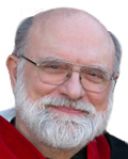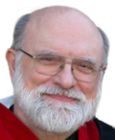
Dreaming
Dreams and Spiritual Seekers
Dreams as evidence for the importance of “a spiritual world“.
Posted July 23, 2011
Dreams have always provided the primary experiential evidence for the reality and importance of "an unseen spiritual world". The universal experience of dreaming of the recently dead is, for example, a primary piece of evidence for "life after death". The reports of their postmortem experiences often given by these seemingly discarnate dream figures of the recently dead is also a primary source of religious beliefs around the world regarding "karma" and the various systems of postmortem punishment and reward that pervade virtually all world religious traditions.
These connections are as alive and influential today as they were when our ancestors first composed the sacred texts of the world's religions, and when their ancestors first carved figures of the Great Mother into the walls of the caves of Lascaux and the rocks of Willendorf.
My experience as a professional dream worker for more than 40 years continues to convince me that all dreams, (even in the particularly the worst, gut-wrenching, heart-pounding nightmares), come in the service of health and wholeness and speak a universal language of metaphor and symbol. My experience has also convinced me that Carl Jung is the most reliable and experienced guide to this world of universally shared human experience.
I have devoted my professional career, both as a Unitarian Universalist minister, and as a progressive community organizer and social change agent, to exploring this world of archetypal symbol and metaphor, paying particular attention to the ways in which these universally shared symbolic patterns influence our waking lives as well as the dreams we remember from sleep.
I am often asked to speak about the "Biblical basis" of dream work. This is not difficult to do because ALL the sacred narratives of the world are laced with stories and pronouncements about how we human beings are closer to the Divine, (for lack of a better term), in our dreams than any other state of consciousness.
The "health and wholeness" that are the basic symbolic organizing principles of all dreams, (regardless of age, gender, language, culture, ethnic extraction, formal education, passionately held beliefs - or the lack of them), can easily be seen as "messages from the Divine". Exploring and illuminating this basic organizing principle of our deep shared dream life as human beings has led me to work with people from many religious traditions, and particularly with the "un-churched", for whom these archetypal layers of meaning and implication are equally omnipresent.
Just as working with dreams regularly leads Christian and other self identified religious dreamers to consider and address "non-religious" matters and issues of political and cultural concern, - it also leads regularly to self identified "atheist" academic and intellectual dreamers to consideration of and active involvement in matters of religious and spiritual importance in their individual and collective lines.
The only one who can say with any certainty what the deeper meanings and implications of his or her dreams may be is the original dreamer - the one who experienced the dream directly. However, without the help of other people's projections and suggestions, (they are one in the same), we dreamers will inevitably be uniquely and selectively blind to the deeper resonances and unconscious truths given symbolic shape in our own dreams.
Gathering and sharing our dreams individually and particularly in groups, using a few simple guidelines for mutually respectful group process and the acknowledgment of our inevitable unconscious projections, regularly helps us all become more conscious of the deep shared common humanity and evolutionary possibility out of which our dreams spring, and towards which our dreams direct our attention.
The simple fact that most of our dreams seem so strange and confusing upon first encounter is proof that "the book of revelations is not closed". This is an exciting realization for religious seekers and secular explorers alike.

